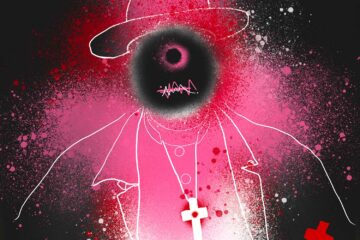Overview: In this short solo episode (ep 139), Adam Williams talks about the essential value in stepping up to our stories and vulnerably sharing them, with some inspiration from Fat Joe, Dax Shepard and Shaun White. (Released on podcast on Feb. 22, 2023)
Also on Apple, Spotify, Pandora, Stitcher, YouTube, Google and other players.
EP 139 SHOW NOTES, LINKS & TRANSCRIPT
Connect with Adam Williams
Humanitou on Instagram: @humanitou
About Adam
Artwork
Podcast cover art: Adam Williams
Music
“Old Rope” by Joe Johnson | joejohnsonsings.com
Original Written Version
Every now and then, I ask podcast guests, whether on Humanitou or on the new podcast I’m hosting based in Chaffee County, Colorado, called We Are Chaffee: Looking Upstream, why they share their stories with others, in general, and specifically with me for a publicly shared podcast?
It’s a question I revisit for myself occasionally. I’m fascinated by why we humans tell stories, why we reflect on our lives and open up about them to audiences. (I’m equally fascinated by why some people do not see the value in their own stories, or in sharing them.)
Why do we feel compelled to sit with anyone, let alone a stranger who records the conversation for public consumption, and vulnerably share about our missteps in life, and our traumas, hopes and triumphs?
I was listening to Dax Shepard’s podcast, Armchair Expert, today. He was talking with the snowboarder Shaun White and dropped a gem of a thought about why we share our vulnerable sides publicly. I noted it and ran with these thoughts:
We think it’s our achievements, our dreams realized, and facades of strength and perfection that most stand to gain acceptance and appreciation by others, maybe even to wow and inspire others, when really the most inspirational quality we have is our flaws, and how vulnerably and generously we share them.
 This is the power of story and being fully available to one another as humans. This is possibly the only way we connect, seeing the authentic humanity in each other. When we build facades to conceal our truest stories, the ones we carry in shame because we do not accept ourselves and fear others will not either, we inhibit connection, love and acceptance.
This is the power of story and being fully available to one another as humans. This is possibly the only way we connect, seeing the authentic humanity in each other. When we build facades to conceal our truest stories, the ones we carry in shame because we do not accept ourselves and fear others will not either, we inhibit connection, love and acceptance.
Carrying pain in secrecy, or what we perceive to be secrecy, denies us and others. It withholds the opportunity to give and receive what we most need: connection.
Later in the day, I started up another conversational podcast, The Limits with Jay Williams, and the hip-hop legend Fat Joe served up this amazing and relevant perspective: “I live my life like a open book, total transparency. I want people to learn about my mistakes. I want people to learn about my failure. I want people to learn about my wins, you know what I’m sayin’? So that we can just pass a baton of hope.”
Our stories, maybe especially the ones we most want to hide, have the power to set others free, give them the “permission” they’ve needed to accept themselves, love themselves, stand taller and reach further. We don’t always know what, who, when, why or how sharing our lived experiences and perspectives will make the difference in someone else’s day – or life.
As the host of two human-forward conversational podcasts in the past several years, I frequently assure guests who are feeling the uncertainty of vulnerability that our stories have power and our sharing is vital. Ultimately, as cathartic as it often is for the storyteller to open up and share about their lived experiences, I’d say it’s an act of courage and service to others.
I now know that I listen to conversational podcasts like the ones I host, because I want connection to others. And that connection might only come through the sharing of story.
Photo by Dmitry Ratushny


